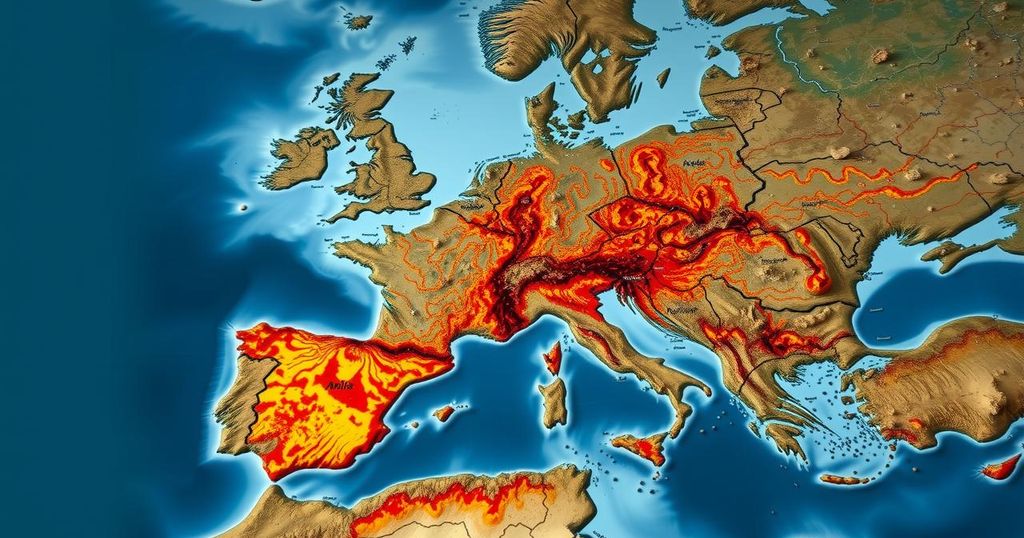Experts warn of a potential repeat of the 1755 Great Lisbon Earthquake in Portugal and Spain, which could lead to catastrophic consequences due to inadequate infrastructure. They emphasize the urgent need to reinforce buildings, especially schools and hospitals, to ensure public safety against future seismic events. Historical data and expert analysis suggest that the Iberian Peninsula remains at risk of severe earthquakes, necessitating thorough emergency preparedness.
Experts are issuing urgent warnings to authorities in Portugal and Spain regarding the potential for a devastating earthquake akin to the catastrophic event of 1755. This earthquake, known as the Great Lisbon Earthquake, reached a magnitude of nine on the Richter scale and resulted in approximately 60,000 fatalities across Portugal, Spain, and Morocco, alongside a significant tsunami that ravaged coastal areas. Seismologists stress the necessity for enhanced structural reinforcements, particularly in schools and nurseries, to mitigate the effects of future seismic events in the region. Mário Lopes, a professor at the Instituto Superior Tecnico (IST) and a doctor in Seismic Engineering at Imperial College London, has highlighted the vulnerability of current infrastructure. In Greater Lisbon alone, around 600,000 residents inhabit structures ill-equipped to withstand intense earthquakes. The research emphasizes that many educational facilities, situated in older buildings, are at high risk of serious damage or collapse during a major seismic event, thus placing children at risk. Lopes advocates for a national initiative focused on upgrading these vulnerable establishments. Furthermore, it was noted that public hospitals, particularly Santa Maria and São José in Lisbon, might not withstand a severe earthquake. The risk extends beyond physical damage, as a tsunami, triggered by an offshore quake, could lead to more devastating consequences for coastal cities. The area under the Straits of Gibraltar possesses an active subduction zone, raising the likelihood of powerful quakes similar to the historic 1755 disaster. To address these perils, experts urge immediate and strategic government action to reinforce critical infrastructures, ensuring community safety against the threats posed by potential seismic activity.
The urgency surrounding earthquake preparedness in the Iberian Peninsula is informed by historical precedent, particularly the Great Lisbon Earthquake of 1755, which stands as one of Europe’s deadliest natural disasters. Measuring between 8.5 and 9 on the Richter scale, this quake devastated the city of Lisbon, causing extensive loss of life and subsequent damage from tsunami waves. Today, experts are concerned that insufficient structural integrity within current buildings, especially those housing vulnerable populations such as children, could repeat the tragedy of 1755. The geographical context, including the unique subduction zone beneath the Gulf of Cadiz and Gibraltar that promotes tectonic activity, demands comprehensive and proactive measures to safeguard against future seismic threats.
In summary, the prospects of a foreseeable catastrophic earthquake in the Iberian Peninsula highlight a critical need for preventive measures and enhancements to building standards, particularly in educational and healthcare facilities. The warnings from experts, coupled with historical evidence from the 1755 earthquake, underscore the imperative for immediate governmental action to fortify vulnerable infrastructures. As Portugal and Spain face potential seismic risks, robust preparation could significantly reduce the impact of future disasters, ultimately saving lives and preserving communities.
Original Source: www.theolivepress.es






